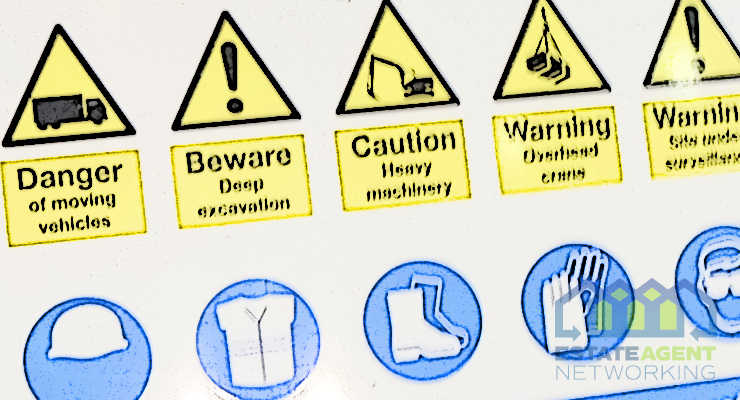Google Analytics for Estate Agents: How should you be using it?
Why should you be using Google Analytics?
GA is one of the most important tools that you can use to measure the performance of your website. Google collect huge amounts of data about your site everyday. Anything from number of website visits to bounce rate to goal completion, you name it, they collect it. The great thing is, Google collect all of this data and give it to you as a free easy to manage service! If used in the right way this information can be invaluable to your business especially when it comes to getting the most from your website.
How do I set up my Google analytics account?
First off, your website designer should have got your details and set you up with an account when the website was being built. If not, don’t worry it is a very easy process to get an account set up, just follow the steps below:
1) Go to the analytics homepage http://www.google.com/analytics/
2) Add in an email and password
3) Add a tracking code to your page so Google knows when your site is visited (ask your web provider to do this, it take literally 2 seconds!)
After you have done this in a few hours you should start to see data coming through to your analytics page!
How should I set up my dashboard?
This is different for everyone but I am going to give my opinion on what i think are the best metrics for an estate agent to have on their dashboard.Firstly click on ‘+ New Dashboard’, it will then give you the option of using a starter pack or using a blank canvas, for the purpose of this blog I’m going suggest you start with a blank canvas. You are allowed 12 different widgets on your dashboard, this seems like a lot but there are so many metrics that you can use to measure the performance of your site you may end up creating more than one dashboard!
1) Visits – this is one of the headline stats that most people look at and with good reason. A high number of visits to your site means more people looking at your properties and interacting with your website, inevitably leading to valuations and applicant registrations. Not only does a high number of visits mean more site interaction it also means that Google will give your site more authority and rank you highly for your keywords!
2) Bounce rate – this effectively means the number of people that came to a landing page and then immediately left. Google use this as a metric for their search rank. Having a low bounce rate % also means that your website satisfies the needs of target user and it is likely that they will re visit your site. Generally anything below 40% is good for an estate agents website.
3) Visits and % New visits by Keyword – This widget is one of the most important if you are actively involved in increasing your rankings on Google. It will show the exact terms that people search and then find you under on Google and the number of session under that keyword. Google have a privacy rule in place that effectively blocks you from gaining this information from people who are logged into a Google account and searching with https: so in this table you may see a percentage showing up as ‘not provided. While this is slightly frustrating it is unlikely these blocked keywords are any different to your other main keywords its just that they are hidden.
4) Page views by page – This is important because it effectively lets you see which pages are popular are which aren’t. For an estate agent it could be used to see how often people have been viewing properties that are listed.
5) Average time on page – This metric should be included on your dashboard to get a good idea of how well the pages that you have created serve their purpose to the end user. If the average time on page is low, especially for a property website then you need to re-think the design of your site and make it more user friendly.
6) Pages per visit – Being able to see the average number of pages that are navigated to during the average visit is important for seeing how well the user journey has been coordinated. You want your end user to see as much as the site as possible while being led back to the key pages (search results).
7) Page views by mobile – If you have a responsive site this is a figure that you will want to see. Many people will be browsing a property website on mobile devices more than others as they may see a property they like while they are walking around town.
8) Goal completions and goal conversions rate by source – A goal completion may be someone clicking on the contact us button or value my home button. This metric then measures the number of people that clicked on these button compared to the source they came from. This is a great tool for measuring the effectiveness of your marketing.
I’ve got my dashboard. How should I be using it?
Once your dashboard it set up it is important that you use that stats in the right way. This means putting procedures in place to produce reports at the end of each week or month analysing the data that Google has collected (Google allow you to download your dashboard as PDF which you can effectively use a report). For example at the end of the month you see that your bounce rate is particularly high or that you haven’t been completing goals through the designated sources then you will need to adjust your homepage and your SEO strategy to make sure that your desired end users are landing on the correct pages when they search under one of your key terms. Monitoring the levels of visits to your website is the main headline stat that everyone looks at, and for a good reason. Ultimately more users to your site means an increased chance of interaction and goal completion, if you visit numbers suddenly drop or are gradually decreasing then it is good indication that your website may need updating.
A recent example of this which will take effect next month is Google not showing results which aren’t mobile friendly. If your website doesn’t have a mobile version or isn’t responsive then next month you will see your website traffic drop significantly. Without Google Analytics measuring this data would be very difficult and you wouldn’t be able to track the performance of your website.
Are there any products I can use along side Google Analytics?
There are many apps that you can use alongside Google analytics, not only to drive more traffic to your site but also to measure your rankings. These are the two main apps we should suggest you use alongside GA:
1) Positionly – This is a web application that effectively allows you track all the keywords for your website ranked against your competitors based on Google’s search. Using GA you can track who is coming to your website and on which keywords, measuring this alongside which keywords your rank highly on will give you a much more targeted SEO approach and ultimately save you money!
2) Google Adwords – Another Google product that will drive a lot of traffic to your site is Google adwords. This service allows you to advertise under specific keywords on a Google search (see image below). This will have to be factored into your marketing budget as adwords works on a bidding system.
Conclusion
Google analytics is one of the most important tools you can use to monitor the performance of your website. If you are serious about increasing your online presence and understanding how your customers use your website then you must use Google analytics. Initially it will feel very foreign however once you start to use it everyday you will quickly get to know which data is important to you and how to use this data to your advantage.









